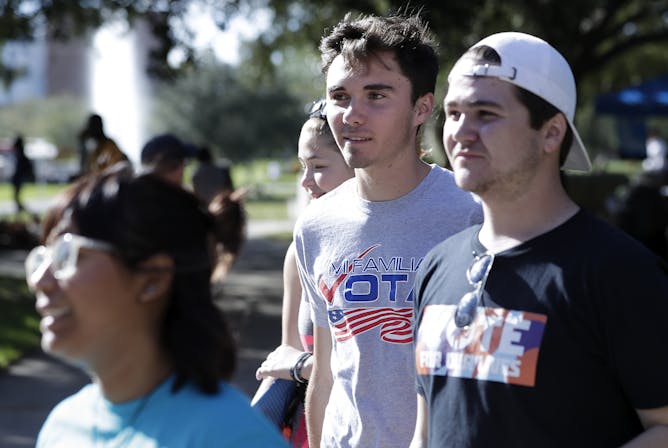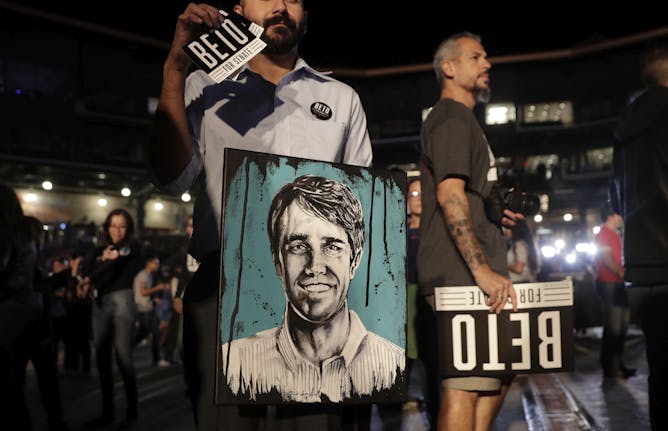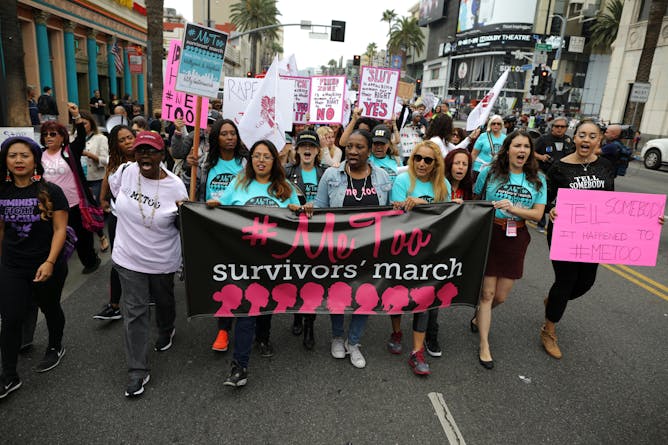Editor's note
|
|
While pundits across the media expected a blue wave in the 2018 midterm elections, a group of researchers at Tufts University have had their eye on something else: young people. Early results show they had good reason. People between the ages of 18 and 29 turned out in record numbers, writes Kei Kawashima-Ginsberg, which actually helps explain some of the major Democratic Party wins. She writes that “young people have gotten involved
and felt ready to make a change in American politics – and so they did.”
Latinos also appear to have voted in record numbers yesterday. The turnout proves that this big and growing group – which has historically voted at low rates – will show up for politicians and parties who talk to them about the issues that matter the most. That’s a lesson for both parties going into 2020, writes UC Berkeley’s Lisa Garcia Bedolla.
In some respects, the election was seen as a referendum on the #MeToo movement, which helped propel more than 500 women to run for political office. And come January, a record number will take seats in Congress, a big reason the House turned blue. University of Oregon law professor Elizabeth C. Tippett that Democrats, with their new power, may finally do for #MeToo what lawmakers did after the 2008 financial collapse: get to the root causes of the crisis and find out why companies turned a blind eye to sexual misconduct for so long.
|
Danielle Douez
Associate Editor, Politics + Society
|

|
|
Top stories
|

Nine months after Parkland, students like David Hogg have joined the youth voter wave.
AP Photo/John Raoux
Kei Kawashima-Ginsberg, Tufts University
A survey shows the newest generation on the voting block is extremely cynical, and that drove record numbers of them out to vote.
|

Democrat Beto O'Rourke won 63 percent of Latino voters in Texas, exit polls show, and Latinos seem to have voted in record numbers. But it wasn’t enough to win.
AP Photo/Eric Gay
Lisa Garcia Bedolla, University of California, Berkeley
Record high Latino participation shows this growing voter segment will turn out for parties and politicians who tackle issues they care about. That's a big lesson for 2020 – and not just for Dems.
|

The #MeToo marchers said they represented people who had been sexually abused.
Reuters/Lucy Nicholson
Elizabeth C. Tippett, University of Oregon
After a year of headlines and ousted CEOs, Congress has yet to pass a single piece of legislation on sexual harassment – let alone hold a hearing. That will change come January.
|
|
|
|
|
|
|
Health + Medicine
|
-
Simon F. Haeder, West Virginia University
Voters listed health care as one of their biggest concerns in the midterm elections. Were their concerns addressed? The results are mixed.
-
Gymama Slaughter, Old Dominion University
A key part of preventing secondary medical problems from diabetes involves glucose monitoring. For National Diabetes Month, a researcher describes her work on a self-powered monitor.
|
|
Science + Technology
|
-
Matthew Doude, Mississippi State University; Christopher Goodin, Mississippi State University; Daniel Carruth, Mississippi State University
One-third of roads in the U.S. are unpaved; plenty more have faded or obscured road markings. Today's self-driving vehicles can't go on them, and will need new algorithms to handle those conditions.
|
|
|
|
|
|
Most read on site
|
-
Jennifer Ruef, University of Oregon
Many Americans feel anxiety or dread when it comes to math. A lot of that anxiety starts in childhood.
-
Matthew D. Neal, MD FACS, University of Pittsburgh
Quickly stopping the bleeding caused by wounds from assault weapons is critical. While 'Stop the Bleed' training has worked, a trauma surgeon asks: Wouldn't it be better to stop the need for it?
-
Steven Pressman, Colorado State University
While a divided Congress will likely mean gridlock, there are two economic policies likely to see significant change: trade and infrastructure.
|
|
|
|
| |
| |
|
|